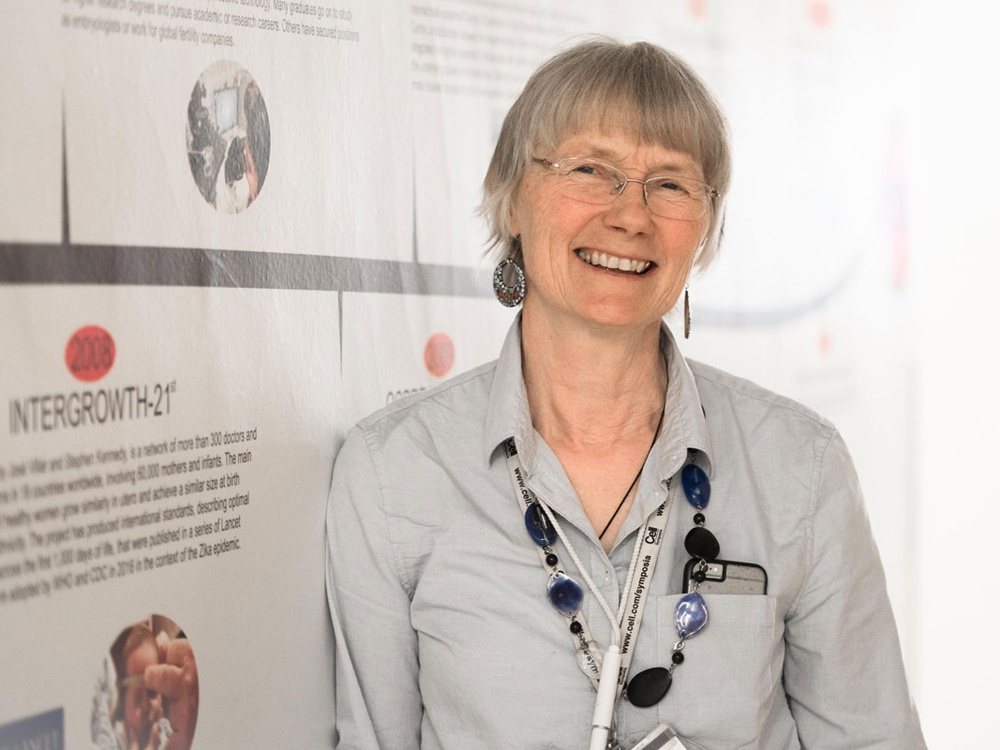The Lily Foundation is committed to giving patients a voice in mitochondrial disease research wherever possible. Not only are patients the best source of knowledge when it comes to advancing our understanding about mitochondrial disease, it's also important from an ethical viewpoint to give those who are living with the condition – or caring for someone affected – a say in research that will likely impact the development of treatments and clinical care.
Online technologies are revolutionising how patients can participate in research, offering new ways to gather complex data on rare diseases, organise it efficiently, and share it with medical scientists and clinicians. Investment in such technologies has been a priority for The Lily Foundation in recent years, with several exciting projects underway that will benefit patients and the wider field of mitochondrial research.
One such project is the Rare and Undiagnosed Diseases Study (RUDY), an online research tool designed for the mitochondrial disease community. Simply put, RUDY is an online platform that lets patients record their lived experiences of mitochondrial disease over time. That information is stored on a secure database, where it can be accessed by the patient's doctors and used in anonymised form for research purposes.
Researchers using RUDY will be able to draw on data from a wide pool of mitochondrial disease patients, using search metrics such as disease type, gender, age, medication, symptoms and reproductive history. A database of this sort is invaluable for rare disease research, where it can be difficult to find sufficiently large numbers of patients to ensure accurate results (for example for new drugs trials).
The RUDY platform has already been used successfully for other rare diseases, where it has enabled a more patient-centric approach to clinical care and research. Funded by Lily, WCMR and My Mito Mission, the UK's three main mitochondrial centres (in London, Oxford and Newcastle) are now collaborating to develop the platform for mitochondrial patients.
Professor Joanna Poulton, Honorary Consultant in Mitochondrial Genetics at Nuffield Dept of Women's & Reproductive Health in Oxford, is part of the team developing RUDY for mito.
"The RUDY platform has been used for some years now with other rare disorders, so it seemed obvious to adapt it for mitochondrial disease," she said. "Allowing patients to record their own symptoms, and how they affect their daily life, is a powerful way of monitoring the disease that focuses on patient experience. Clinical examinations are important too, but they only record how the patient is feeling on that day, and can be influenced by numerous factors. By recording that person's experience over time, you get a much more accurate picture and can identify patterns that may otherwise be missed."
Patients using the platform submit data using online questionnaires, adding to them periodically to record different aspects of their disease over time. Aspects such as pain, mobility, fatigue, cognitive ability and diet can then be tracked over time, alongside changes to medications and other clinical interventions.
"Having all three mitochondrial centres involved is brilliant, because we benefit from all that combined expertise," continued Joanna. "One aspect we're really focusing on is the patient questionnaires, which need to be very user-friendly. They are an excellent tool, because whenever patients have an appointment with their doctor, they can print out their information and give the doctor an accurate picture of what's going on for them. We're getting very good feedback from other patients who are using it, and we're really confident this will benefit people with mitochondrial disease."
Putting patients first is a key aim of the RUDY platform, and people affected by mitochondrial disease have been closely involved in its development from the start. Patient groups have been consulted to see what they would like the site to do, and tested trial versions. One area that proved important to users was the ability to easily control how their data is used.
"Patients who enrol with RUDY will have total control over how their information is used for research," said Joanna. "They can choose what they consent to, for example taking part in patient studies, surveys, use of their samples for research, and can change their minds at any time just by logging onto the site. It's a really dynamic, user-friendly approach that empowers patients, and also fast-tracks the consent process to speed up research. It's absolutely unique from that point of view."
The project even has its own patient-led ethics panel, which will be consulted on any future adjustments to the platform, such as changes to questionnaires. Security is paramount; all data is anonymised and any researcher who wants to use RUDY will be subject to a rigorous application process. Once approved, they will have access to a powerful research tool.
"Once it's up and running we'll be able to search data from large numbers of patients more easily than ever before," Joanna explained. "We believe it's a game-changer in terms of the quality of data researchers will be able to access, and will really help advance the search for treatments and therapies that will benefit patients. It's a really powerful resource, and a way of empowering patients to have a voice in how research is done."

